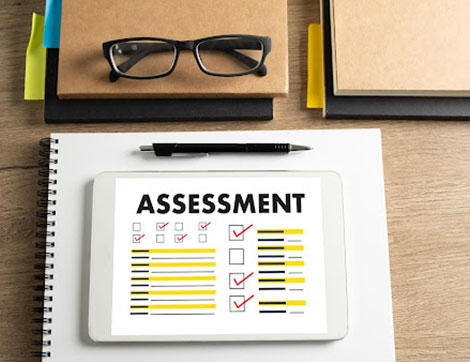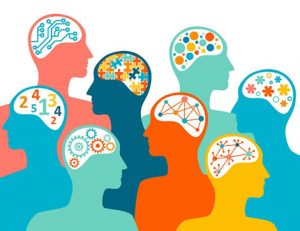The intelligence of different types

Intelligence is a complex topic, and there is much debate surrounding what it actually is and how it can be measured. However, psychologists generally agree that there are four main types of intelligence: the Intelligence Quotient (IQ), the Emotional Quotient (EQ), the Social Quotient (SQ), and the Adversity Quotient (AQ).
Each of these types of intelligence has its own unique benefits and can be helpful in different ways. For example, someone with a high IQ may be good at problem-solving and critical thinking, while someone with a high EQ might be better at managing emotions and empathising with others.
Knowing more about the different types of intelligence can help you understand your own strengths and weaknesses, as well as how you can best support others. It can also be helpful in choosing a career or educational path that suits your individual strengths.
Intelligence Quotient (IQ)
The Intelligence Quotient (IQ) is a measure of a person’s intellectual abilities and potential. It is often used as a predictor of academic success and job performance. You can measure your comprehension level by your Intelligence Quotient (IQ). In order to solve math problems, memorise things, and recall lessons, you need IQ.
The Emotional Quotient (EQ)
The Emotional Quotient (EQ) is a measure of a person’s ability to identify and manage their own emotions, as well as the emotions of others. Those with a high EQ are often said to be more successful in personal relationships and in their careers. In addition to maintaining peace with others, keeping time, being responsible, being honest, respecting boundaries, being humble, genuine, and considerate, the Emotional Quotient (EQ) is a measure of your ability to keep a positive attitude toward others.
The Social Quotient (SQ)
The Social Quotient (SQ) is a measure of a person’s ability to interact effectively with others. Those with a high SQ are typically good at communication and networking and are often successful in fields such as sales and marketing.
A person’s Social Quotient (SQ) determines their ability to establish and maintain a network of friends over time. High EQ and SQ people tend to succeed in life more than those with a high IQ but low EQ and SQ. The majority of schools emphasise improving IQ levels while neglecting EQ and SQ. Despite having an average IQ, a man with a high IQ can be hired by a man with a high EQ and SQ. Character is represented by your EQ, while charisma is represented by your SQ. Efforts to improve your SQ and EQ will be most beneficial.
The Adversity Quotient (AQ)
The Adversity Quotient (AQ) is a measure of a person’s ability to cope with and overcome adversity. Those with a high AQ are often said to be more resilient and adaptable and are better able to bounce back from setbacks. It is a measure of your mental toughness and ability to recover from adversity without losing yourself. When troubles arise, AQ determines who will give up, who will abandon their families, and who will contemplate suicide.
Focus on these quotients as a parent
Exposing children to a variety of experiences can help them develop their IQ, EQ, SQ, and AQ. Parents should encourage their children to try new things, meet new people, and face challenges. By doing so, children can learn to think critically, manage their emotions, navigate social situations, and overcome obstacles. These skills will help them throughout their lives. So, parents should not only focus on their children’s academics, but also on developing their IQ, EQ, SQ, and AQ. By doing so, they will be preparing their children for success in all areas of life.
A well-rounded education will not only make them smarter individuals but better people as well. They will know how to empathize with others, how to communicate, how to work well under pressure, and how to handle difficult situations. All of these skills are essential in the real world.
So don’t forget to encourage your children to explore all aspects of life – not just academics!
Developing all four quotients in your students is important
As a training organisation, it is important to focus on the development of all four quotients in your students. Each one plays an important role in success both inside and outside the classroom.
The intelligence quotient (IQ) measures a person’s cognitive abilities and potential, providing a score that indicates how well they are likely to do in school and in other intellectual pursuits. Emotional quotient (EQ) is a measure of a person’s ability to perceive, understand, and manage emotions. It is important for success in both personal and professional relationships. Social quotient (SQ) measures a person’s ability to interact with others and is important for success in both personal and professional settings. Adversity quotient (AQ) is a measure of a person’s ability to persevere in the face of adversity and is an important predictor of success in life.
While all four of these quotients are important, the EQ, SQ, and AQ are often seen as being more important than IQ for success in life. This is because they measure abilities that are more important for success in the real world than IQ.
So, as a training organisation, it is important to focus on the development of all four quotients in your students. Each one plays an important role in success both inside and outside the classroom.
While a high IQ is certainly helpful in life, it is not the be-all and end-all. EQ, SQ, and AQ are just as important, if not more so. So make sure to focus on developing all four quotients in your students!












